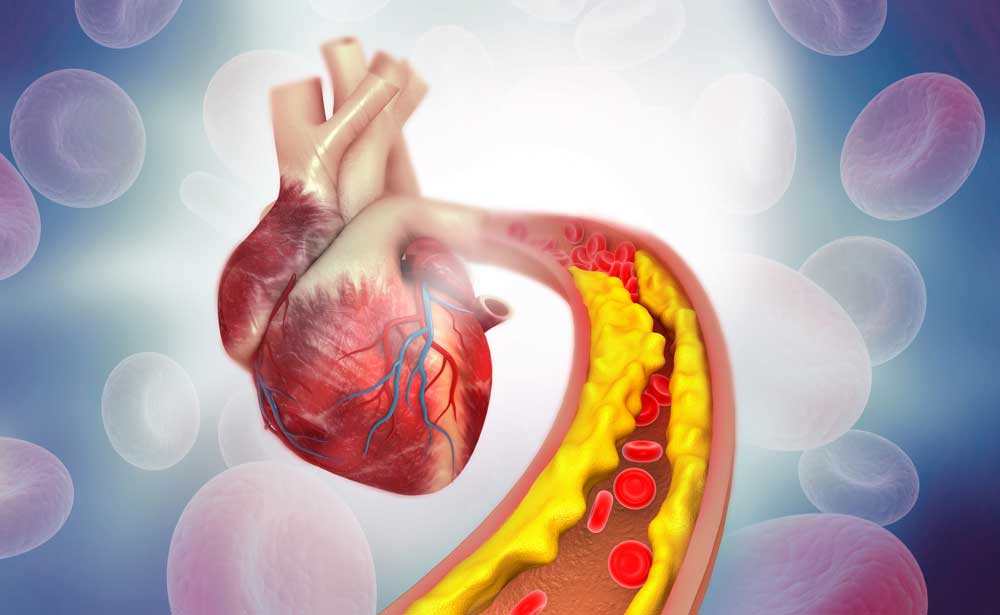In the realm of cardiovascular health, managing cholesterol levels stands as a cornerstone for preventing heart disease. Cholesterol, a waxy substance found in the blood, plays vital roles in the body’s functions. However, when levels become imbalanced, particularly with elevated LDL cholesterol (commonly referred to as “bad” cholesterol), the risk of heart disease escalates. Fortunately, through mindful lifestyle changes, individuals can take proactive steps to manage their cholesterol levels and safeguard their heart health. In this comprehensive guide, we’ll explore nine effective lifestyle modifications that can make a significant impact on cholesterol management and overall cardiovascular well-being.
- Understanding Cholesterol:
Before diving into lifestyle changes, it’s crucial to understand the basics of cholesterol. Cholesterol circulates through the bloodstream in two main types: low-density lipoprotein (LDL) and high-density lipoprotein (HDL). LDL cholesterol is often termed “bad” because it can build up in the arteries, leading to plaque formation and narrowing, while HDL cholesterol is dubbed “good” because it helps remove LDL cholesterol from the bloodstream. Triglycerides, another type of fat, also contribute to heart health. By comprehending these components, individuals can better grasp the importance of managing cholesterol levels.
- Adopting a Heart-Healthy Diet:
Dietary choices wield considerable influence over cholesterol levels. Incorporating heart-healthy foods such as fruits, vegetables, whole grains, lean proteins, and fatty fish rich in omega-3 fatty acids can lower LDL cholesterol and triglycerides. Conversely, limiting saturated and trans fats, found in red meat, processed foods, and fried items, helps reduce LDL cholesterol. Embracing a Mediterranean-style diet, renowned for its cholesterol-lowering properties, can serve as a blueprint for nutritious eating habits.
- Maintaining a Healthy Weight:
Excess weight, particularly abdominal fat, contributes to elevated LDL cholesterol and triglyceride levels while diminishing HDL cholesterol. Engaging in regular physical activity and adhering to a balanced diet aid in weight management, promoting optimal cholesterol profiles and reducing the risk of heart disease. Even modest weight loss yields significant benefits, highlighting the interconnectedness between body weight and cholesterol regulation.
- Prioritizing Physical Activity:
Regular exercise not only aids in weight management but also directly influences cholesterol levels. Aerobic activities such as brisk walking, jogging, cycling, and swimming elevate HDL cholesterol while lowering LDL cholesterol and triglycerides. Aim for at least 150 minutes of moderate-intensity exercise per week, supplemented by muscle-strengthening activities twice weekly. Consistency is key, as habitual physical activity reinforces cardiovascular health and cholesterol management.
- Quitting Smoking:
The detrimental effects of smoking extend beyond lung health to cardiovascular well-being, including cholesterol levels. Smoking accelerates the buildup of plaque in the arteries, exacerbating cholesterol-related complications. By quitting smoking, individuals mitigate these risks, experiencing improvements in HDL cholesterol levels and overall cardiovascular function. Utilize smoking cessation resources and support systems to embark on a smoke-free journey and enhance heart health.
- Limiting Alcohol Consumption:
While moderate alcohol intake, particularly red wine, has been associated with modest increases in HDL cholesterol, excessive alcohol consumption poses detrimental effects on cholesterol levels and overall health. Limit alcohol intake to moderate levels—up to one drink per day for women and up to two drinks per day for men—to reap potential cardiovascular benefits without compromising cholesterol management. Avoiding binge drinking and opting for healthier alternatives further safeguards heart health.
- Managing Stress Effectively:
Chronic stress exerts profound impacts on cholesterol levels and cardiovascular health, prompting the release of hormones that elevate LDL cholesterol and triglycerides. Incorporating stress-reducing techniques such as mindfulness meditation, deep breathing exercises, yoga, and hobbies into daily routines fosters emotional well-being and promotes favorable cholesterol profiles. Cultivating resilience and seeking social support also serve as buffers against stress-related cholesterol disturbances.
- Prioritizing Quality Sleep:
Inadequate sleep disrupts lipid metabolism and contributes to adverse changes in cholesterol levels. Aim for seven to nine hours of quality sleep per night to optimize cholesterol regulation and reduce the risk of heart disease. Establishing a consistent sleep schedule, creating a conducive sleep environment, and practicing relaxation techniques before bedtime enhance sleep quality and support cardiovascular health. Recognize the integral role of sleep in cholesterol management and prioritize restorative sleep habits.
- Monitoring Cholesterol Levels Regularly:
Lastly, staying informed about cholesterol levels through routine screenings empowers individuals to track progress and make informed decisions regarding lifestyle modifications and medical interventions. Consult healthcare professionals for personalized cholesterol management strategies tailored to individual needs and risk factors. By proactively monitoring cholesterol levels and implementing targeted interventions, individuals maximize their potential to achieve optimal heart health and longevity.
Cholesterol management stands as a pivotal component of cardiovascular health, with lifestyle choices playing a central role in achieving optimal cholesterol profiles and reducing the risk of heart disease. By embracing a heart-healthy diet, maintaining a healthy weight, prioritizing physical activity, and adopting stress-reducing strategies, individuals can exert control over their cholesterol levels and safeguard their heart health. Quitting smoking, limiting alcohol consumption, prioritizing quality sleep, and monitoring cholesterol levels regularly further fortify cardiovascular well-being. Empowered with knowledge and proactive lifestyle changes, individuals embark on a journey toward better heart health and longevity, nurturing a vibrant and fulfilling life free from the shackles of cholesterol-related complications.
